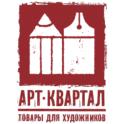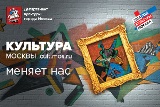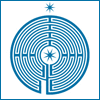The Library of Russian Philosophy and Culture “The Losev House”
Page 1.
Page: ,
The Library of Russian Philosophy and Culture “The Losev House” was founded few years ago. Now it is open for readers every day except Sunday. “The Losev House” is situated in the centre of Moscow, on the Arbat, a famous street in an historical area known for its museums, theaters and other places of interest, which attract crowds of tourists. Among other nearby museums are the Memorial Pushkin Museum, the memorial apartments of poet Andrej Belyj and composer Aleksandr Scriabin. Many people, whose names now represent Russian culture, lived here or nearby, including Vladimir Solovyov, Nikolai Berdiaev, Viacheslav Ivanov, and Mikhail Gershenzon.
“The Losev House” has been established at Arbat 33 because this building was home to Aleksei Fedorovich Losev (1893–1988), one of the famous Russian philosophers and classicists of the twentieth century. He was born in the southern Russian city of Novocherkassk. In 1915 he graduated from Moscow University in two departments: philosophy and classical philology. He also received professional training in music and mathematics. He was a member of the Vladimir Solovyov Religious-Philosophical Society and the Free Academy of Spiritual Culture (founded by N.A. Berdiaev). He collaborated with S.N. Bulgakov, I.A. Il’in, S.L. Frank, Father Pavel Florensky (Father Pavel officiated at Losev’s marriage to V.M. Sokolova in 1922). In the 1920s Losev was a professor of the Moscow Conservatory, full member of State Academy of Artistic Sciences, and Professor of the State Institute of Musical Science. His first publication was in 1916. From 1927 to 1930, he published some of his works in an eight-volume edition: “The Ancient Cosmos and Modern Science”, “The Philosophy of the Name”, “The Dialectics of Artistic Form”, “The Dialectics of Number in Plotinus”, “Aristotle’s Critique of Platonism”, “Music as an Object of Logic”, “Essays on Classical Symbolism and Mythology”, and “The Dialectics of Myth”. “The Dialectics of Myth” was the last book of non-Marxist philosophy published in Russia during Soviet regime. After this book Losev was arrested and spent three years in a forced labour camp. Losev was permitted to publish again only after Stalin’s death. Now the list of his works includes more than 800 items, out of which more than forty are monographs, including eight volumes on the “History of Ancient Aesthetics” and monographs on “Hellenistic-Roman Aesthetics”, “The Aesthetics of the Renaissance”, “Vl. Solovyov and his time”. Many of the books were written in the house at Arbat 33, where Losev lived for 47 years – from 1941 to 1988. Now The Losev House is a state-funded culture centre.
The Library of Russian Philosophy and Culture “The Losev House” is based on Losev’s private book collection, donated to the Library by Losev’s widow Aza Takho-Godi, professor from Moscow State University. This collection includes over ten thousand books in ten languages such as Latin, Greek, German, French, English and, of course, Russian. The collection represents various aspects of Losev’s research. The books can be divided into several large classes: ancient literature, philosopher from Ptato and Plotinus to Kant, Hegel and Vl. Solovyov, logic, linguistics, mathematics etc. The collection contains many rare books from the eighteenth century or with authors’ inscriptions.
Losev’s book collection is concentrated at the second floor in the Losev Reading Room, which is open to all certified scholars with postgraduate degree and adult students. Other readers can utilize the public reading-room on the first floor. In that reading room there are many different newspapers, dictionaries and scientific journals, aimed at the educated reader, to whom all the Library’s books, except Losev’s personal collection, are available.
Apart from Losev’s collection the Library comprises both new books and three private collections. The first collection belongs to professor Gleb Sokolov from Moscow State University, who devoted many years to study ancient art. The second one – to Nina Dubovitskaia, who worked at the Tretyakov Gallery specializing on Russian art. The third – to Losev’s friend prof. Enver Makaev. Makaev was linguist, but his collection in the Losev House includes books on Russian Silver Age poetry and religious philosophy. These private collections, in aggregate numbering 5 000 books, have created a solid basis for our Library.
But “The Losev House” is not only a Library, but also a real culture centre. This explains the close attention paid to organizing the Losev memorial museum, which is incorporated in the Library structure and which conducts exhibitions where everyone can see portraits of the main Russian thinkers of the nineteenth and twentieth centuries, including the émigré period after October 1917. We hold special tours of the Library and its exhibitions for pupils from lyceums and gymnasiums. We hope that such excursions deepen their knowledge of Russian philosophy and culture.
Page: ,

- Культура – вещь бескорыстная. Беседа с Еленой ТАХО-ГОДИ.
- 02 - 11 сентября 2016 года - Всероссийский фестиваль энергосбережения "ВместеЯрче"
- 6 сентября 2016г. Ярмарка вакансий для молодёжи "Первый шаг к успеху"
- 12-24 сентября 2016г. Международная научная конференция XV «Лосевские чтения»
- 21- 25 сентября 2016 г. Российский форум коллекционеров
- 8 – 9 декабря 2016 г. Международная научная конференция «Д.С.Мережковский: писатель – критик – мыслитель. К 75-летию со дня смерти»
- Программа "Читаем Аристотеля" в Библиотеке "Дом А.Ф. Лосева".
- Детская студия «Карандаш и кисточка»
- Семинар «Творческое наследие А.Ф. Лосева: проблемы и перспективы» Программы
- Семинар «Русская философия» Программы
- Архив новостей
 '
'




-
В августе 2016 года исполняется:
- 14.08 — 150 лет со дня рождения Д.С. Мережковского
- 28.08 — 105 лет со дня кончины Д.Н. Цертелева
- 28.08 — 125 лет со дня рождения В.Н. Ильина
подробнее об этих и других событиях...
2016 - Год Аристотеля...

|























